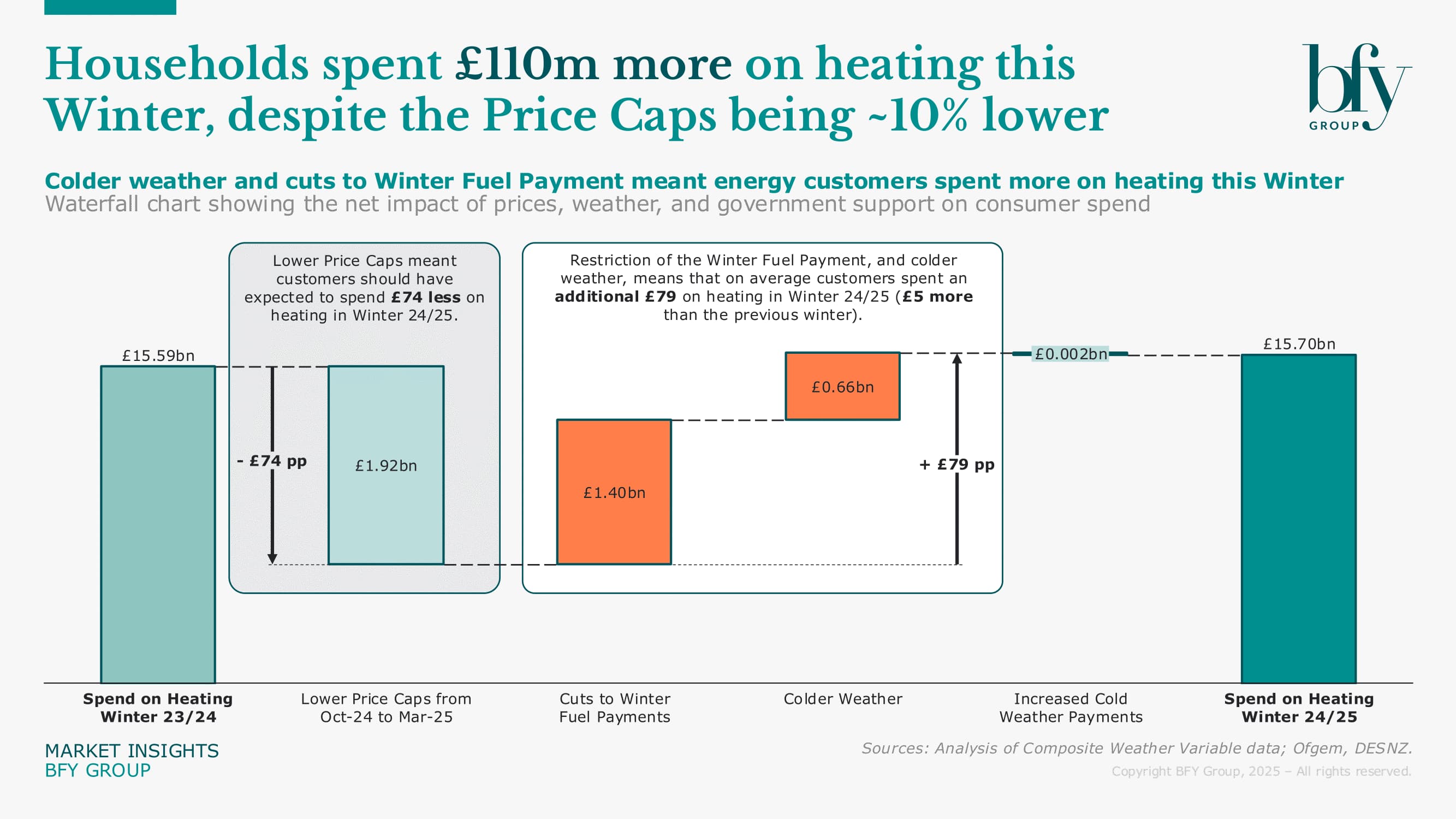Households spent £110m more on their energy bills this winter, despite lower Price Caps.
Analysis from John de Bono shows that while energy Price Caps were ~10% lower, many households still saw higher heating costs due to colder weather and cuts to government support.

Key points:
- Colder weather and cuts to the Winter Fuel Payment mean millions spent more on heating this Winter
- Lower Price Caps meant customers should have expected to spend £74 less on heating in Winter 24/25.
- Restriction of the Winter Fuel Payment, and colder weather, means that on average customers spent an additional £79 on heating in Winter 24/25 (£5 more than the previous winter).
These findings underscore the gaps in current support schemes, reinforcing conclusions from our recent fuel poverty report.
Despite £1.5bn being allocated to government schemes, millions of households still lack the assistance they need. As detailed in our full report, better-targeted support could significantly close the fuel poverty gap in Britain.
Government's £1.5bn in fuel poverty support isn't reaching those who need it most
Fuel poverty is affecting more households than ever before, yet current government support schemes fail to provide adequate relief. Our report with So Energy, launched in Parliament, presents a comprehensive analysis of the crisis and offers a roadmap for more effective solutions.
- 1 in 5 households are fuel poor – Our analysis reveals that 5.4m households struggle to afford their energy bills, with an average fuel poverty gap of £550, totaling £3bn across Great Britain.
- The true scale of fuel poverty is uncertain – A lack of a unified definition and complexity in measurement obscures the full impact, but it's clear that millions face hardship.
- Current schemes missing those most in need – The Warm Home Discount (WHD) and Energy Company Obligation (ECO) fail to reach up to 4m fuel-poor homes, highlighting the need for better targeting.
- A new Warm Homes Support Scheme is needed – A restructured bill support mechanism, at little or no extra cost to the exchequer, could provide tiered relief to those most affected.
- Private sector investment could be leveraged – Financial incentives could help shift some of the burden from the public sector, providing additional funding options for tackling fuel poverty.
Click here to get the full report.
For more on fuel poverty, customer debt, and opportunities to better support vulnerable households, contact Rachel Littlewood.
Rachel Littlewood
Director
Rachel leads our operational and financial turnaround engagements, helping to solve complex operational challenges while maximising commercial performance and customer outcomes.
View Profile

